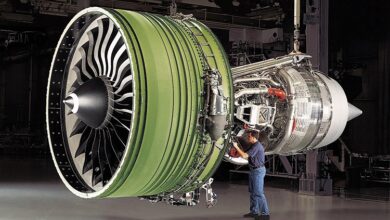Precision Slitting Lines: Enhancing Efficiency in Metal Processing
Precision slitting lines are a crucial component in metal processing, enabling manufacturers to produce high-quality metal strips with precise dimensions and tolerances. These lines are designed to optimize the slitting process, reducing waste and improving efficiency. In this article, we will explore the benefits of precision slitting lines and how they can enhance efficiency in metal processing.
Key Components of Precision Slitting Lines
A precision slitting line typically consists of several key components, including a slitter head, a strip tensioning system, and a recoiler. The slitter head is responsible for cutting the metal strip into precise widths, while the strip tensioning system ensures that the strip is properly aligned and tensioned during the slitting process. The recoiler then rewinds the slit strips into coils, ready for further processing or shipment. By integrating these components, precision slitting lines can achieve high levels of accuracy and efficiency.
Advantages of Precision Slitting Lines
Precision slitting lines offer several advantages over traditional slitting methods. One of the primary benefits is improved accuracy, as the lines can produce strips with precise dimensions and tolerances. This is particularly important in industries such as aerospace and automotive, where precise tolerances are critical. Additionally, precision slitting lines can reduce waste and improve material utilization, as the lines can be programmed to optimize the slitting process and minimize scrap. This can lead to significant cost savings and improved profitability.
Increased Efficiency and Productivity
Precision slitting lines can also improve efficiency and productivity in metal processing. By automating the slitting process, manufacturers can reduce labor costs and improve production times. Additionally, the lines can be programmed to optimize the slitting process, reducing downtime and improving overall efficiency. This can enable manufacturers to produce more metal strips in less time, improving their competitiveness and profitability.

Improved Quality and Consistency
Precision slitting lines can also improve the quality and consistency of metal strips. By producing strips with precise dimensions and tolerances, manufacturers can ensure that their products meet the required specifications. Additionally, the lines can be programmed to detect and correct any defects or irregularities during the slitting process, ensuring that the final product is of high quality. This can lead to improved customer satisfaction and reduced returns.
Reduced Maintenance and Downtime
Precision slitting lines can also reduce maintenance and downtime in metal processing. By integrating advanced technologies such as sensors and automation systems, the lines can detect and prevent potential issues before they occur. Additionally, the lines can be designed with easy maintenance in mind, making it easier for manufacturers to perform routine maintenance and repairs. This can reduce downtime and improve overall efficiency, leading to increased profitability and competitiveness.
Industry Applications
Precision slitting lines have a wide range of applications in various industries, including aerospace, automotive, construction, and consumer goods. In the aerospace industry, precision slitting lines are used to produce high-precision metal strips for aircraft and spacecraft components. In the automotive industry, the lines are used to produce metal strips for vehicle components such as brakes and suspension systems. In the construction industry, precision slitting lines are used to produce metal strips for building components such as roofing and siding.
Conclusion
In conclusion, precision slitting lines are a crucial component in metal processing, enabling manufacturers to produce high-quality metal strips with precise dimensions and tolerances. Silicon steel is a type of steel alloy that contains a small percentage of silicon By integrating advanced technologies and automation systems, precision slitting lines can improve efficiency, productivity, and quality, while reducing waste and downtime. With their wide range of applications in various industries, precision slitting lines are an essential tool for manufacturers looking to improve their competitiveness and profitability



